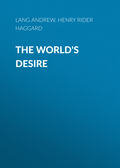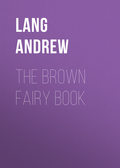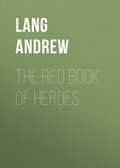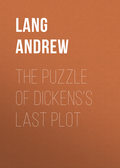
Lang Andrew
Magic and Religion
Mr. Howitt, who is deeply initiated, writes: 'Beyond the vaulted sky lies the mysterious home of that great and powerful being who is Bunjil, Baiame, or Taramulan in different tribal languages, but who in all is known by a name the equivalent of the only one used by the Kurnai, which is Mangun-ngaur, Our Father.'32
Now, not to multiply evidence which is provided by other observers as to Central Australia (not so central as the Arunta country) and the North, Mr. Tylor is confronted with this problem: Have all the tribes who regard a powerful being, Baiame or another, as founder of their ancient mysteries, borrowed his name and attributes, since 1840 or so, from whites with whom they were constantly in hostile relations? Is it probable that, having hypothetically picked up from Christians the notion of a moral Father in heaven, their 'priests' and initiators instantly disseminated that idea over most of the continent, and introduced it into their most secret and most conservative ceremonies? Would they be likely to restrict so novel a piece of European information to the men? Mr. Dawson, in his 'Aborigines of Australia' (p. 51), writes: 'The recent custom of providing food for it (a corpse) is derided by intelligent old aborigines as "white fellows' gammon"!' Thus do they estimate novelties! Yet in Mr. Tylor's theory it is the most conservative class of all, the medicine-men and learned elders – everywhere rivals and opponents of Christian doctrine – who pick up the European idea of a good, powerful father or master, borrow a missionary name for him (we have shown that the name, Baiame, is not of missionary origin), and introduce him in precisely the secret heart of the mysteries. This knowledge is hidden, under terrible penalties, from women and children: to what purpose? Do missionaries teach only the old rams of the flock, and neglect the ewes and lambs? Obviously the women and children must know any secret of divine names and attributes imparted by missionaries. Again, it is not probable that having recently borrowed a new idea from the whites the blacks would elaborately hide it from its authors, the Europeans. So well is it hidden that, till he was formally initiated, Mr. Howitt had no suspicion of its existence.33
Mr. Tylor may rest in his hypothesis of borrowing, but for the reasons assigned we think it impossible in our, and his, selected North American cases, and inconceivable as an explanation of the Australian phenomena.
Finally, Mr. Tylor candidly adduces a case in which Mr. Dawson, taking great and acknowledged trouble to collect evidence, learned from the blacks that they had believed in a benevolent being, Pirnmeheal, 'whose voice is the thunder,' 'before they knew of the existence of Europeans,' who 'have given them a dread of Pirnmeheal.'34 We add Mr. Howitt's testimony to a supreme being ruling 'from Omeo to Shoalhaven River, from the coast to Yass Gundagai,' concerning whom 'old men strenuously maintained that it was so before the white men came,' they themselves, now aged, having only learned the secret when they were initiated 'and made men' at about the age of fourteen.35 In the same essay of 188536 Mr. Howitt tells of a native whose grandfather initiated him as to an all-seeing personality, Bunjil, 'up there,' who would mark his conduct. 'This was said before the white men came to Melbourne' (1835). Bunjil, said William Beiruk, a black, was called 'our father' 'before white men came to Melbourne.'
I might give other evidence in favour of the unborrowed character of Australian belief in some such being as Baiame. Thus Mrs. Langloh Parker, the careful collector of 'Australian Legendary Tales,'37 was herself interested in the question. She approached the subject as a disciple of Mr. Herbert Spencer, who allows hardly a germ of religion to the Australians. On hearing what she did hear, as to Baiame, from the tribesmen, she asked one of them whether the idea was not borrowed from Europeans. The old warrior answered that if it were so the young men would know most about Baiame. But they know nothing, apparently because the old rites of initiation have fallen into disuse. Nor are they much more familiar with Christian doctrine. This black man had logic in him. Mrs. Langloh Parker came, contrary to her prepossessions, to the same opinion as our best authority, Mr. Howitt, that the Australian belief is unborrowed.
This lady, who has taken very great pains in criticising and collecting her evidence, kindly sent me an essays of Mr. Manning's from 'The Journal of the Royal Society of New South Wales,' vol. xvi. p. 159, 1883. Mr. Manning was an early settler in the north border of the southern colony. About 1832 he was in Europe, and met Goethe, whose undiminished curiosity, he being then about eighty-five, induced him to bid Mr. Manning examine Australian beliefs. He did, but lost his notes, made in 1845-1848. In these notes, which he later recovered, Mr. Manning used Christian terminology, instead of making a verbatim report. Struck by the certainly singular savage idea of a son (begotten in some cases, in others a kind of 'emanation') of the superior being, he employed theological phrases. The son, in his story, sprang from a liquid like blood, which Boyma (Baiame) placed in a vessel within a crystal oven. The myth of such a birth, as Mr. Hartland remarks, is familiar to Zulus and Red Indians.38 It is therefore not likely to be of European origin. But Mr. Manning's evidence, despite its terminology, so far agrees with Mrs. Langloh Parker's account of the extant Baiame belief as to 'make a case for further inquiry;' so Mr. Hartland concedes. I ask for no more.39 Thus Mr. Manning has Ballima, Mrs. Langloh Parker has Bullimah, for a kind of floral paradise of souls, very beautifully described in the lady's 'More Australian Legendary Tales.'
Both authorities mention prayers for the dead; Mrs. Langloh Parker quotes what Mr. Hartland calls 'very interesting funeral rites and prayers for the dead.' He adds: 'We want to be assured whether these are usual, by means of an accurate description of the customary ceremonies, and that she does not give us.' I shall make inquiry; but what does it matter whether the rites, in the overthrow of native manners, are now usual or not? Baiame is unknown to the new generation, as we have seen. Prayers to him, then, cannot be usual. The point is that Mr. Manning in 1845, and Mrs. Langloh Parker in 1898, both mention the prayers for the dead, certainly not borrowed from Protestants. There is a similar account, only that of an unnamed runaway convict who lived with the black fellows in North-Western Australia.40 By a mythical contradiction, the soul of the hero Eerin, prayed for in Mrs. Langloh Parker's tale, now inhabits a little bird.
Another curious point needs to be considered by the advocates of the theory of borrowing. Mr. Hartland offers some deserved censures on Mr. Manning's terminology in his report of Australian religion (1845-1848). Mr. Manning says: 'They believe in the existence of a Son of God, equal with him in omniscience, and but slightly inferior to his Father in any attribute. Him they call "Grogoragally." His divine office is to watch over all the actions of mankind, and to bring to life the dead to appear before the judgment seat of his Father, who alone pronounces the awful judgment of eternal happiness in heaven (Ballima) or eternal misery in "Oorooma" (hell), which is the place of everlasting fire (gumby). The Son … acts as mediator for their souls to the great God, to whom the good and bad actions of all are known.' As Mr. Hartland truly says, 'this is not an accurate scientific account.' Even Mr. Manning's 'capital letters' are censured.
Probably the native theologian really said something like this: 'Boyma' (Baiame) big man; very budgery man. Him sit on big glass stone. Him son Grogoragally can see everything and go everywhere. See budgery man, like him; see bad man, plenty too much devil devil. Likes budgery man; no likes bad man: he growl too much. Budgery man die, Grogoragally tell Boyma; Boyma say, 'Take him Ballima way, plenty budgery place.' Bad man die; Boyma say, 'Take him Oorooma way, plenty too hot, him growl there.' Grogoragally plenty strong, him not so strong as Boyma.
This, or something like this, would be the actual statement of the dusky theologian. It is easily rendered into Mr. Manning's terminology; but at the same time the native, in his rude lingua franca, or pidgin English, could hardly do justice to his creed. It was his creed; Mr. Hartland himself recognises the original character of the native version of the Supernatural Birth.41
Here are certainly 'Biblical analogies,' as Mr. Tylor recognises, but they are as certainly unborrowed.
Now let us fancy that a traveller, not a Greek scholar, is storm-driven to a hitherto unknown island. He finds a race of heathen white men. He describes their religion. 'Despite their polytheism, they have certainly been visited by Christian missionaries, or are descended from a Christian colony. They believe in a supreme being whom they call Zeus. He has a son named Apollon or Phoebus Apollon, who is all-knowing and all-seeing. He acts as a kind of mediator between Zeus and men, to whom, as one of the native hymns says, he "delivers the counsels of the Father, and his unerring will." This Apollo is consulted through an hysterical woman, who lives in a cave. After being convulsed, like other savage mediums, she speaks in a kind of verse. Her advice is often obscure and ambiguous, but generally of a moral tendency.
'This son of Zeus is believed to be the only god who really knows the future and the will of his father. There is another son, Hermes, one of whose duties is to conduct the souls of the dead into the presence of their judge, who is not Zeus, but another god.
'There is also a son of Apollo, whom I take to be only a kind of double of that god; he sometimes appears to his worshippers as a serpent: his name is Asclepius.
'This reminds us of what Winslow writes about the Red Indians of New England. They have a supreme being, Kiehtan, whose son, Hobamok, appears in their assemblies as a serpent. Ridley has the same story about the blacks of Australia. I infer, then, that the natives of this island have inherited or been taught some elements of Christianity, as in the case of Apollo, the mediator between Zeus and men; and Hermes, the Guide of Souls as they call him, psychopompos in their language. But they have mixed up all this with degrading superstitions.'
Of course our traveller has arrived among Greeks, and quotes the Homeric hymn to Apollo. But the Greeks, being prior to Christianity, did not borrow from it, as our traveller supposes. On the other hand, the Greek beliefs which he describes resemble Australian and American beliefs more closely than Australian and American beliefs resemble the creed taught by missionaries. Yet neither Mr. Tylor nor any other friend of the borrowing theory asserts that the Australians or Americans borrowed their tenets from Greece.
The truth seems to be that where a supreme being is regarded as too remote and impassive, he is naturally supplied with a deputy. Ahone has Oki, Kiehtan has Hobamok, Boyma has Grogoragally, Baiame has Tundun, or in places Daramulun; Nyankupon, in West Africa, has Bobowissi. Sometimes, as in the Australian Noorele's case, these active deputies are sons of the supreme being. No borrowing is needed to explain ideas so natural to early men, believing in a supreme being remote and retired, little concerned with mundane affairs, and acting through a deputy or deputies. In other cases, as of the Finnish Num, or the Zulu Unkulunkulu, or the Algonquin Atahocan, the being is quite neglected in favour of spirits who receive sacrifices of meat or grease. Human minds work on similar lines, without borrowing, which is only alleged in the case of Christianity to account for the beliefs which do not fit the 'ghost theory' of modern speculators.
The essential point of Mr. Manning's report, injured as it is by his impossible terminology, is the extreme secrecy maintained on these points by his savage informants. They used to believe that the world would perish if the women heard of their dogmas. Thus a man said to Mr. Howitt (whose competence as a witness is indisputable): 'If a woman were to hear these things, or hear what we tell the boys, I would kill her.'42 One of Mr. Manning's witnesses slunk 'into a wooden fireplace,' whence he whispered his beliefs. He had previously examined doors and windows in search of listeners. A man who reported these creeds would, if they became divulged among the women, be obliged to kill his wife.
If the religious ideas were borrowed from missionaries, the women would know them as well as the men. They would not be reserved for initiates at the mysteries, through which Mr. Howitt derived his most esoteric knowledge of creeds, whereof, in 1881, he was absolutely ignorant.43
If the beliefs were of missionary origin, the young men, not the old men, would know most about Baiame. For similar beliefs in North-West Central Queensland I may cite Mr. Both.44 The being Mulkari is described by Mr. Both as I a benevolent, omnipresent, supernatural being; anything incomprehensible.' 'Mulkari is the supernatural power who makes everything which the blacks cannot otherwise account for; he is a good, beneficent person, and never kills any one.' His home is in the skies. He was also a medicine-man, has the usual low myths about him, and invented magic. So writes Dr. Both, who knows the local Pitta Pitta language – and is not a missionary. Dr. Both is pursuing his researches, and his remarks are only cited provisionally, awaiting confirmation.
Sometimes European observers do not see the trend of their own reports. In 1845 Mr. Eyre described 'the origin of creation 'as narrated to him by Australian blacks on the Murring River. A being, Noorele, with three unbegotten sons, lives up among the clouds. He is 'all powerful and of benevolent nature. He made the earth, trees, water, &c. He receives the souls (ladko = shades, umbra) of the natives, who join him in the skies and will never die again.' Yet Mr. Eyre adds: 'A Deity, a Great First Cause, can hardly be said to be acknowledged.'45 What is Noorele if not a 'Great First Cause'?
Among some tribes Bunjil, merely a title of authority, meaning master, lord, headman, is a name of the superior being. Abundance of the mythology of Bunjil, often ludicrous or degrading, the being showing as a supernormal medicine-man, may be found in Mr. Brough Smyth's great collections.46 But no evidence can be better than that of native poetry, which proves a higher aspect of Bunjil.
A Woiworung bard of old made a song which moved an aged singer to tears by 'the melancholy which the words conveyed to him.' It was an 'inspired' song, for the natives, like ourselves, would think Tennyson inspired and Tupper not so. Usually 'the spirits' inspire singers; this song was inspired by Bunjil himself, who '"rushes down" into the heart of the singer,' just as Apollo did of old. It is a dirge of the native race:
We go all!
The bones of all
Are shining white.
In this Dulur land!
The rushing noise
Of Bunjil, our Father,
Sings in my breast,
This breast of mine!47
The missionaries do not inspire these songs. They put them down. 'The white man,' says Mr. Howitt, 'knows little or nothing of the black fellows' songs.' One of Mr. Manning's informants (1845) was angry when asked for the Hymn to Baiame (Boyma). He said that Mr. Manning knew too much already.
I have dwelt specially on Australia, because there, as the natives do not worship ancestral spirits (the names of the dead are tabooed), their superior being cannot have been evolved out of ghost worship. I have expressly avoided the evidence of missionaries, except the early Jesuits, because missionaries are believed by some writers to be biassed on this point, though, in fact, on other points they are copiously cited by anthropologists. As Mr. Tylor finds the saintly and often martyred Jesuits of 1620-1660 worth quoting, I have therefore admitted Father Le Jeune's testimony to the existence of Atahocan before their arrival in America, with Father Brebeuf's Oki, or 'un Oki,' whose anger is feared and who sanctions treaties. It is impossible to me to understand how the savages could borrow from Europeans the beliefs which the Europeans found extant when they arrived. I have not touched the case of Africa. In 'The Making of Religion' (pp. 222-228), I argued against Sir A. B. Ellis's elaborate theory of borrowing a god, in the case of the Tshi-speaking races. I did not know that this exact writer had repudiated his theory, which was also rejected by Miss Mary Kingsley.
As to Australia, in face of the evidence (which settled Mr. Howitt's doubts as to the borrowing of these ideas) can any one bring a native of age and credit who has said that Baiame, under any name, was borrowed from the whites? Mr. Palmer is 'perfectly satisfied' that 'none of these ideas were derived from the whites.' He is speaking of the tribes of the Gulf of Carpentaria, far away indeed from Victoria and New South Wales. There is no greater authority among anthropologists than Waitz, and Waitz rejects the hypothesis that the higher Australian religious beliefs were borrowed from Christians.48
To sum up, we have proved, by evidence of 1558, 1586, 1612-16, and 1633, that a sort of supreme creative being was known in North America before any missionary influence reached the regions where he prevailed. As to the Australian god Baiame, we have shown out of the mouth of Mr. Tylor's own witness, Mr. Hale, that Baiame preceded the missionaries in the region where literary evidence of his creed first occurs. We have given Mr. Hale's opinion as to the improbability of borrowing. We have left it to Mr. Tylor to find the missionary who, before 1840, translated 'Creator' by the Kamilaroi word 'Baiame' while showing the difficulty – I think the impossibility – of discovering any Kamilaroi philologist before Mr. Threlkeld. And Mr. Threlkeld certainly did not introduce Baiame! We have proved that, contrary to Mr. Tylor's theory of what a missionary can do, Mr. Threlkeld could not introduce his own names for God, Eloi and Jehovah-ka, into Kamilaroi practice. We note the improbability that highly conservative medicine-men would unanimously thrust a European idea into their ancient mysteries. We have observed that by the nature of Mr. Tylor's theory, the hypothetically borrowed divine names and attributes must (if taken over from missionaries) have been well known to the women and children from whom they are concealed under dreadful penalties. We have demonstrated the worthlessness of negative evidence by proving that the facts were discovered, on initiation, by a student (Mr. Howitt), confessedly in the first rank, though he, during many years, had been ignorant of their existence. We show that the ideas of age and paternity, in an object of reverence, are natural and habitual to Australian natives, and stood in no need of being borrowed. We suggest that the absence of prayer to a powerful being is fatal to the theory of borrowing. We show that direct native evidence utterly denies the borrowing of divine names and attributes, and strenuously asserts that before Europeans came to Melbourne (1835) they were revealed in the secret doctrine of ancient initiatory rites. This evidence again removed the doubts which Mr. Howitt had entertained on the point, and Mr. Palmer and Mr. Dawson agree with Mr. Howitt, Mr. Kidley, Mr. Günther, and Mr. Greenway, all experts, all studying the blacks on the spot. In the study, Waitz is of the same opinion. Australian religion is unborrowed.
It is rare, in anthropological speculations, to light on a topic in which verifiable dates occur. The dates of the arrivals of missionaries and other Europeans, the dates of Mr. Hale's book, of Mr. Threlkeld's books, of Mr. Ridley's primer, are definite facts, not conjectures in the air. While this array of facts remains undemolished, science cannot logically argue that the superior beings of low savage belief are borrowed from Christian teachers and travellers. That idea is disproved also by the esoteric and hidden nature of the beliefs, and by the usual, though not universal, absence of prayer. The absence of prayer again, and of sacrifice, proves that gods not bribed or implored were not invented as powerful givers of good things, because good things were found not to be procurable by magic.
This condition of belief is not what a European, whatever his bias, expects to find. He does not import this kind of ideas. If they are all misreports, due to misunderstandings in America and Australia from 1558 to 1898, what is the value of anthropological evidence? It ought to be needless to add that when good observers like Miss Kingsley find traces of Jesuit or other missionary teaching in regions, as Africa or Canada, where Jesuits actually taught in the past, I accept their decision.[43] My arguments against the theory of borrowing apply chiefly to cases where the beliefs reported were found already extant by the first white observers, to tribes where missionaries like Mr. Threlkeld could not introduce their names for deity, and to tribes which jealously conceal their theology from the whites.







